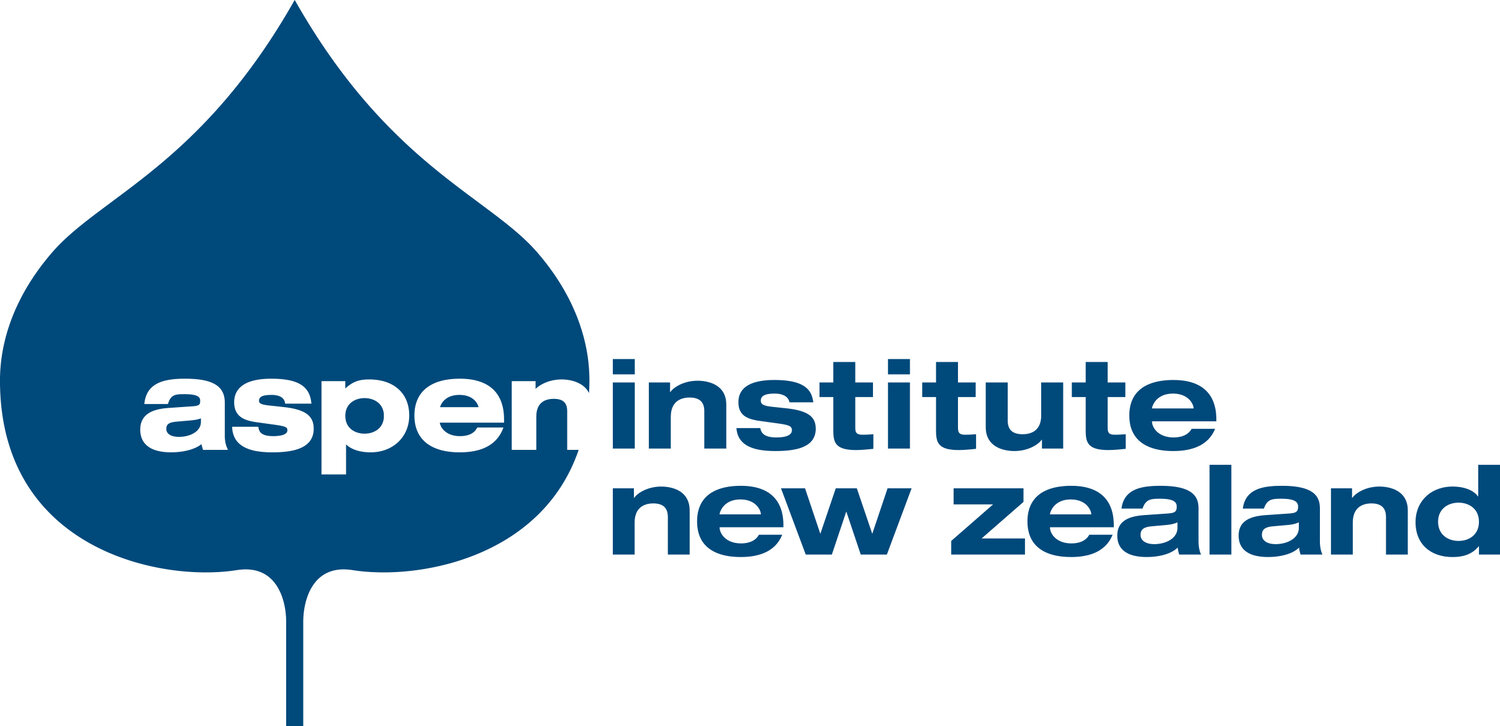The Intergenerational Challenges seminar is the seventh in the Aspen Institute New Zealand series on Critical Thinking and Values Based Leadership. The seminar focuses on the critical importance of the temporal aspects of decision making. Given the myriad tax, inflation, supply chain, daily news, and market pressures on decision making it is particularly difficult to think long term about the world we are leaving for the next generation. However, although the default framing on "planning for our children and grandchildren" is about financial inheritance, money will inevitably be an important but minority factor in determining the next generation's quality of life.
Is all the financial planning we do for the future a good proxy for handing off a positive future for our future generations? Is it an accident that many young people are angry - claiming that the prior generation has systematically mortgaged their future and not acted as responsible stewards of the Earth? Maybe the next generation will enjoy more degrees of freedom, superior health, and a higher quality of life than our own. Likely the actual results will be mixed in complex new ways. This seminar does not presume to provide final answers to these questions. It does focus on two ‘background’ questions:
What do we think the longer term consequences are of current social decisions?
Is there anything we can do to systematically improve the probability of more positive long term outcomes?
Given the current practice of hyper discounting the longer term consequences of our decisions, maybe relatively small and early interventions (like compound interest in the financial sphere) could make a significant difference. These questions do not have simple answers, but they may be worth addressing thoughtfully.
The seminar combines value-based leadership, critical thinking, and tools for intuitively modeling future consequences. Critical thinking is about systematically avoiding the bugs and biases that permeate ideology driven systems of thought. It attempts to substitute evidence and rationality for unexamined assumptions and closed minded decision making. Systems thinking is about modeling how systems work. We inevitably use models for decision making - however simple or complex. Values are about the quality of our goals, but they don't guarantee our effectiveness in dealing with systems. Together, these disciplines reinforce both the quality of our objectives and our effectiveness in achieving them via the systems we design and manage. The Aspen Institute has sponsored over 60 years of productive and civil dialogue about building better future possibilities.
This seminar will take place in three 2.5-hour sessions over two days.
Intergenerational Challenges Seminar
Tue 30 Aug 9am to 11:30am and 1:30pm to 4pm
Wed 31 Aug 9am to 11:30am
Tue 30 Aug Morning: Long term stewardship and systems dynamics
Tue 30 Aug Afternoon: Current planning for future generations
Wed 31 Aug Morning: Inter-generational policy tradeoffs
With moderators expert in systems thinking, finance, business and policy:
Neil Jacobstein - Chair AI & Robotics Singularity University, 13 years as MediaX Distinguished Scholar Stanford University, Aspen Institute Crown Fellow and Socrates Seminar moderator, Founding Director Aspen Institute NZ, Environmental Sciences BS University of Wisconsin, Human Ecology MS in joint program at University of Texas and NASA Johnson Space Center. Six years on the US National Academy of Sciences Division of Earth and Life Studies Committee. Member of the 2021 US National Academy's Strategic Plan team. Founding Editorial Board of AAAS Science Robotics journal. Decades of industry and government systems consulting.
Dr. Susan Houge Mackenzie - Associate Professor in the University of Otago School of Business (Department of Tourism). Her research, which focuses on how to foster enduring psychological well-being for individuals, organisations, and communities across a range of life domains, has been featured in over 50 academic publications and translated into a range of applications for public and private organisations. Susan’s academic work is underpinned by her previous career as an adventure guide in New Zealand and North and South America, and her experiences as a competitive soccer player and coach. Her applied work includes sport psychology for business workshops; mental skill training workshops; risk management and guide training for tourism operations; and consulting with a range of organisations such as the US Forest Service, New Zealand Ministry of Tourism, and the History Channel. She serves as an Associate Editor for two leading research journals, and on the advisory boards for Tourism Central Otago and the Adventure Tourism Research Association. Her most recent translational project focuses on how regional tourism organisations can promote intergenerational community well-being and flourishing via tourism.
Sir Bill English KNZM - former Prime Minister of New Zealand. Bill retired from politics in 2018 and sits on the board of Wesfarmers Ltd, Todd Corporation and Aspen Institute New Zealand. With his family he is a director and investor in several private companies in primary production and serving the philanthropy and disability sectors. He consults to NZ and Australian companies and governments.
These seminars bring together participants from business, education, government and industry. Aspen’s approach is through curated readings and Socratic dialogue where the focus is on what the participants think. Absolutely no technical background is necessary to participate - just the ability to read, listen, and think critically. There is no need for agreement on a right answer or outcome - only the commitment to be civil and thoughtful.
Note: During the seminar, what you say will not be recorded or used for attribution.
The participation fee is $500+GST. Scholarships are available upon application.
Join us today!
Note: The IoD invites its members to log attendance at Aspen Institute seminars for consideration of CPD (continuing professional development) points. The allocation of points is based on activity with a focus on improving core governance competencies and knowledge.

